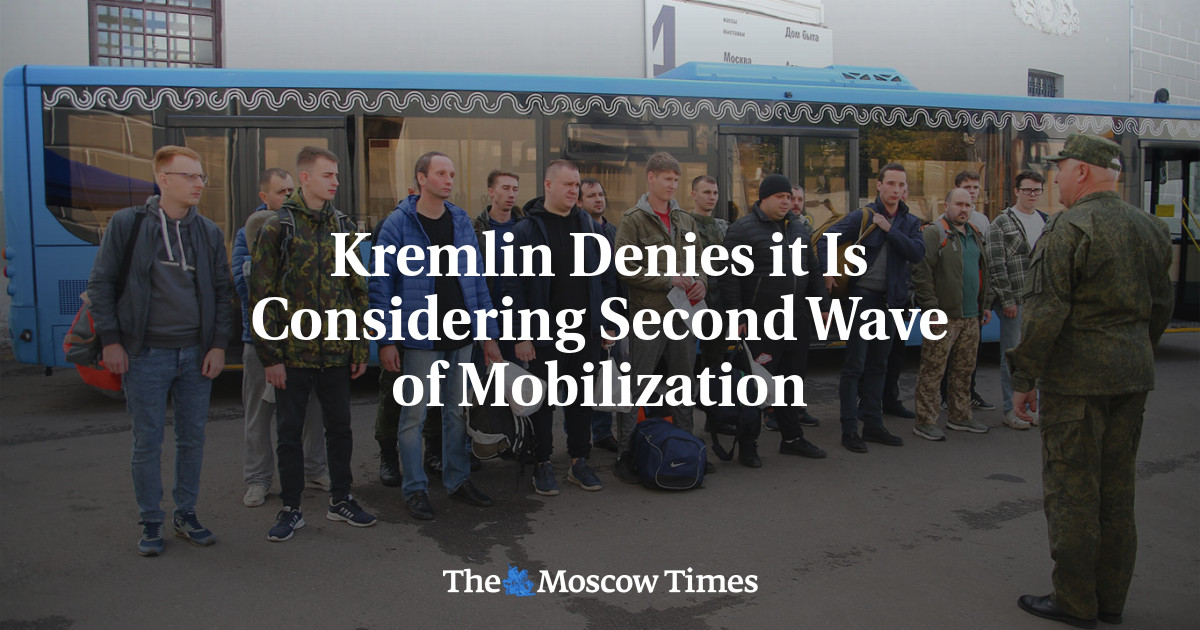
Kremlin spokesperson Dmitry Peskov on Monday denied the Kremlin was considering a second wave of mobilization to further bolster Russian forces in Ukraine.
“There are no discussions about that,” Peskov told reporters in a call, according to the state-run TASS news agency.
The Kremlin denial of another round of mobilization came amid increasing speculation that Moscow may be readying another recruitment drive in an attempt to redress Russia’s shortage of manpower in Ukraine.
In recent days, opposition politicians, military analysts and even some of Russia’s pro-war bloggers have been suggesting that a second wave of mobilization could be on the cards.
“There is no doubt that a new wave of mobilization will begin in mid-January,” wrote Kirill Goncharov, the deputy head of the Moscow branch of the liberal Yabloko party on Telegram.
“They are still sending out call-up papers, they are still preventing people from leaving the country,” Goncharov told The Moscow Times on Monday.
While Peskov denied any discussion in the Kremlin of a second mobilization drive, he did not completely rule out the possibility of Russia calling up additional men to fight in Ukraine.
“I cannot speak for the Ministry of Defense. There are no discussions on this matter in the Kremlin,” Peskov said during the press call.
A “partial mobilization” drive across Russia in September saw the call-up of an estimated 300,000 men to the armed forces.
Mark Galeotti, an expert on Russian security at the London-based consultancy Mayak Intelligence, described a fresh mobilization drive as “highly unlikely” for now, adding that the military was “having huge problems properly managing the first wave and is busy trying to arm, equip and minimally train 150,000 or so to form units able to be operational come spring.”
An estimated 259 called-up servicemen are believed to have died either in training camps in Russia or in subsequent fighting on the frontlines in Ukraine, according to independent Russian news outlet MediaZona, which has been using open source data to track Russia’s dead in the conflict.
“The level of anxiety across Russian society won’t permit the Kremlin to undertake a second wave of mobilization,” Andrei Kolesnikov, an expert on Russian domestic politics at the Carnegie Endowment for International Peace, told The Moscow Times.
However, as Russia continues to suffer battlefield setbacks at the hands of the Ukrainian military, Kolesnikov warned that nothing could be ruled out in 2023.
“Everything depends on Putin’s mood at the start of next year,” he added.